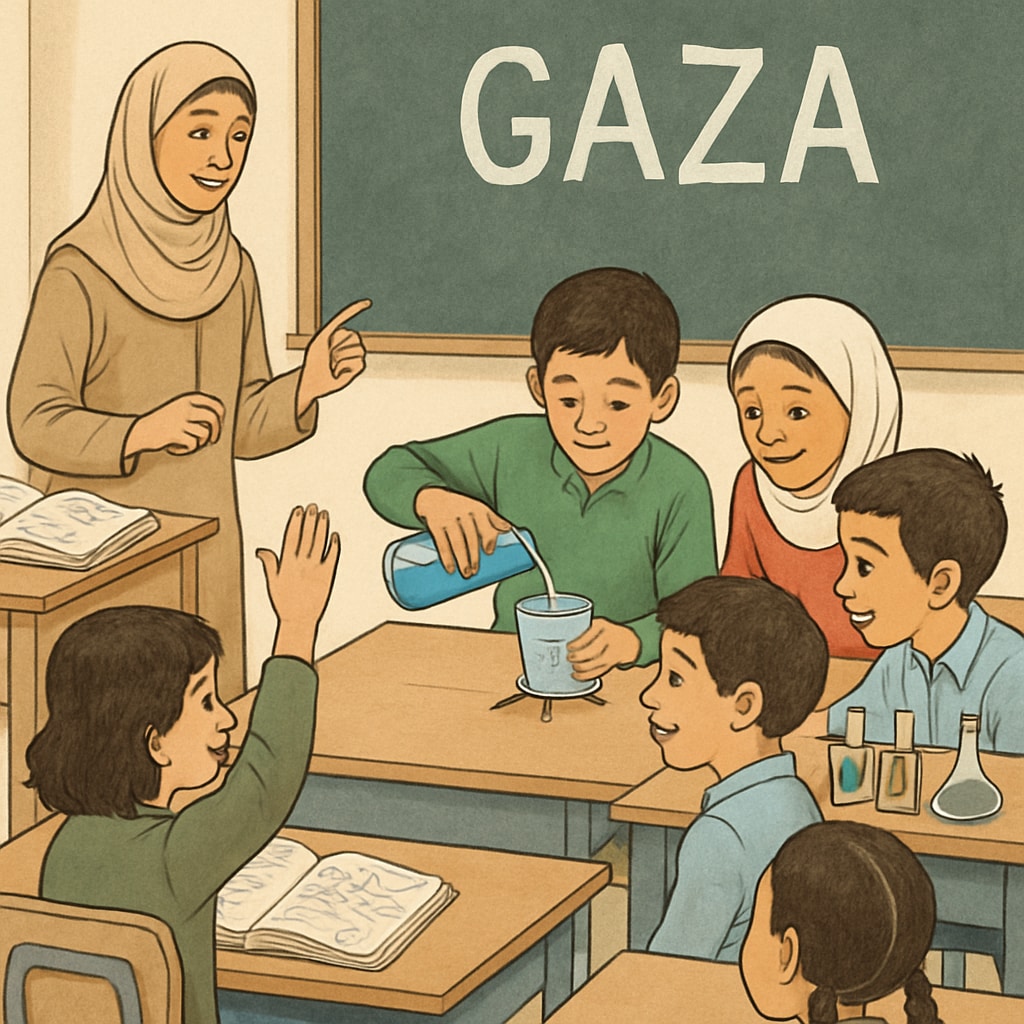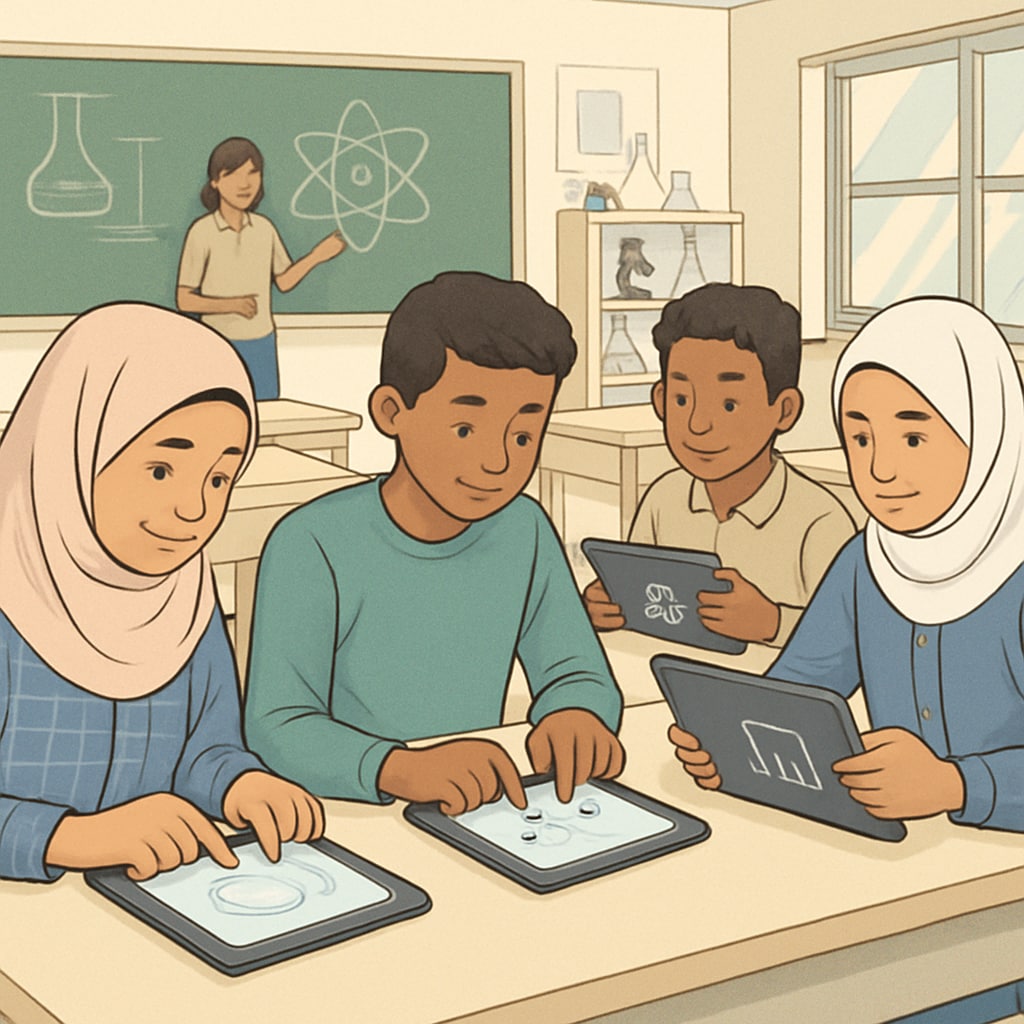Rebuilding education in Gaza public schools requires a well-thought-out approach to developing science and social studies curricula. In a region deeply affected by conflict and geopolitical challenges, creating balanced and objective educational frameworks is essential for fostering peace, critical thinking, and long-term recovery. This article examines the importance of curriculum planning in Gaza, the challenges faced, and potential solutions for achieving sustainable educational development.
The Importance of Curriculum Planning for Gaza Schools
Education is more than just imparting knowledge; it plays a critical role in shaping the social fabric of communities. In Gaza, where schools have been directly impacted by conflict, rebuilding the education system represents a pathway to hope and resilience. Science and social studies curricula can serve as powerful tools for equipping students with knowledge, skills, and perspectives that encourage critical thinking, problem-solving, and cooperation.
For example, science education can promote innovation and technological development, while social studies curricula can help students understand historical contexts, cultural diversity, and the importance of peaceful coexistence. By focusing on these subjects, Gaza schools can prepare students to contribute meaningfully to their communities and navigate complex global challenges.

Challenges in Developing Balanced Curricula
Designing science and social studies curricula for Gaza schools comes with unique challenges. The region’s geopolitical instability and history of conflict make it difficult to create educational materials that are both objective and inclusive. Key obstacles include:
- **Limited resources:** Many schools lack access to modern teaching materials, laboratories, and technology.
- **Cultural sensitivity:** Curricula must respect local traditions while promoting universal values like peace and equality.
- **Political influences:** Avoiding biased narratives in social studies requires careful planning and collaboration.
- **Teacher training:** Educators need proper training to deliver complex topics effectively and objectively.
Overcoming these challenges requires international collaboration, funding, and a shared commitment to creating unbiased educational frameworks. Organizations such as UNICEF and UNESCO could play a pivotal role in providing resources and expertise to support curriculum development in Gaza.
Strategies for Building Effective Curricula
Despite the challenges, there are actionable strategies for designing effective science and social studies curricula in Gaza schools:
- **Collaborative approach:** Involve educators, policymakers, and community leaders in curriculum design to ensure it reflects local needs and global standards.
- **Focus on neutrality:** Avoid political biases in social studies by emphasizing universal themes such as human rights and global citizenship.
- **Integrate technology:** Utilize online resources and digital tools to supplement limited physical materials.
- **Teacher empowerment:** Provide professional development programs to enable educators to teach effectively in challenging environments.
- **Promote peace education:** Introduce modules that encourage conflict resolution, empathy, and understanding of diverse perspectives.
By implementing these strategies, Gaza schools can build curricula that not only address academic needs but also contribute to long-term community resilience and stability.

Conclusion: Building a Foundation for Peace
Rebuilding education in Gaza requires more than just physical infrastructure; it demands thoughtful and inclusive curriculum planning that addresses the region’s unique challenges. Science and social studies are critical subjects for fostering intellectual growth and social cohesion in post-conflict settings. By prioritizing balanced curricula, empowering educators, and leveraging international support, Gaza schools can lay the groundwork for a brighter, more peaceful future.
Education has the power to transform lives and communities. In Gaza, creating effective science and social studies curricula offers a vital opportunity to rebuild hope, nurture talents, and promote lasting peace.
Readability guidance: This article uses short paragraphs and lists to enhance readability. It includes a mix of active and passive voice, ensuring clarity while maintaining a professional tone. Transition words are integrated throughout to improve flow and coherence.


